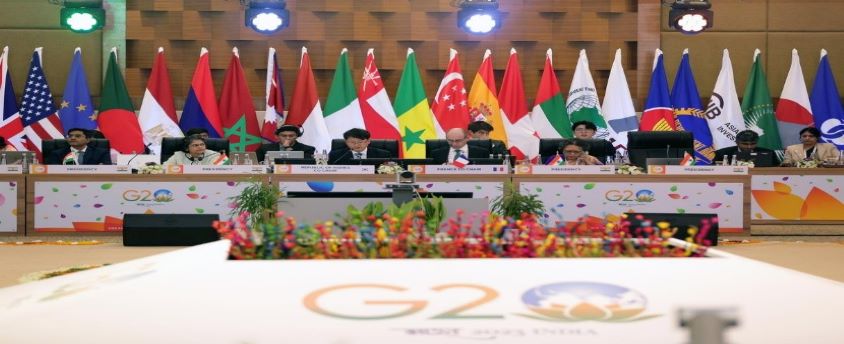Multilateral reforms as a priority in the G-20
09, Mar 2023

Prelims level : International Relations
Mains level : GS-II International Relations | Bilateral, Regional and Global Groupings and agreements involving India
Why in News?
- India announced its agenda would be inclusive, ambitious, action-oriented, and decisive as India assumed the G-20 presidency in December 2022.
- India further has stated its main objectives would be to develop global consensus over critical development and security issues thereby delivering global goods.
- These announcements have resulted in placing multilateral reform as one of the key presidential priorities for India. Additionally, the G-20 idea bank and Think 20 have also proposed multilateral reforms as top priorities.
- Also, the T20 Task Force on “Towards Reformed Multilateralism (TF7)” aims to formulate a roadmap for “Multilateralism 2.0”.
Multilateralism and its significance:
- Multilateralism refers to the collaboration between various nations in pursuit of a common goal which could also involve the participation of civil society groups and the private sector.
- Though there is a long history, multilateralism is mainly associated with the time after World War II.
- Various multilateral organisations such as the United Nations (UN), World Health Organization (WHO), Organisation for Economic Cooperation and Development (OECD), etc. play a key role in ensuring multilateral global order.
- Multilateral organisations are organisations made up of three or more partner countries with the objective of working together to solve problems and create favourable circumstances for all members.
Challenges to Multilateralism:
- Multilateral cooperation in the current era is facing multiple crises which include:
- Loss of trust in multilateral cooperation due to persistent deadlocks.
- Multilateralism is witnessing a utility crisis as powerful and most developed countries have started to believe that multilateral cooperation is no longer beneficial for their interests.
- Furthermore, increasing great-power tensions, populist nationalism, de-globalisation, climate change emergencies, and the COVID pandemic have aggravated the crisis.
- This crisis has forced nations to resort to other arenas such as bilateral, plurilateral and minilateral groupings which are polarising global politics.
Need for reforms and associated issues:
- Most of the challenges to the multilateral global order are global in nature and require collaborative solutions.
- However, reforming multilateralism would be a challenging task.
- At present, multilateralism is deeply entangled in global power politics and thus any effort or action to reform multilateral institutions will ultimately affect and bring about changes in the current distribution of power.
- However, bringing about changes in the distribution of power in the global order is not an easy task and can have far-reaching implications.
- Furthermore, the status quo powers look at multilateral reforms as a zero-sum game.
- e. if dominant global powers believe that reforms would impact their influence and dominance it becomes difficult to reach a consensus on such reforms.
- Multilateralism often appears to be at loggerheads with the realities of the changing global order which has led to the formation of new groupings and coalitions of like-minded.
- This has made it difficult to reform older and traditional institutions and frameworks.
Way forward for India and G-20:
- In order to fix the current multilateral crises, the G-20 must step in and devise solutions.
- It is important for the G-20 to focus on building a proper narrative on multilateral reforms and G-20 can establish a separate engagement group for this purpose.
- The limitations of multilateral cooperation must be acknowledged and hence it is important for the G-20 to continue to encourage minilateral groupings as a new form of multilateralism.
- Establishing such networks of issue-based minilateral groupings would play a key role in preventing competitive coalitions.
- Multilateral reforms demand concessions and compromises which would require mobilising the political will. This is where India as the current chair can step in.
- In order to address the issue of trust and utility, India and the G-20 must undertake efforts and resolve pressing global issues which would showcase the efficiency of the model of multilateralism.
- India must urge Brazil and South Africa, the upcoming chairs of the grouping, to also focus on multilateral reforms.






